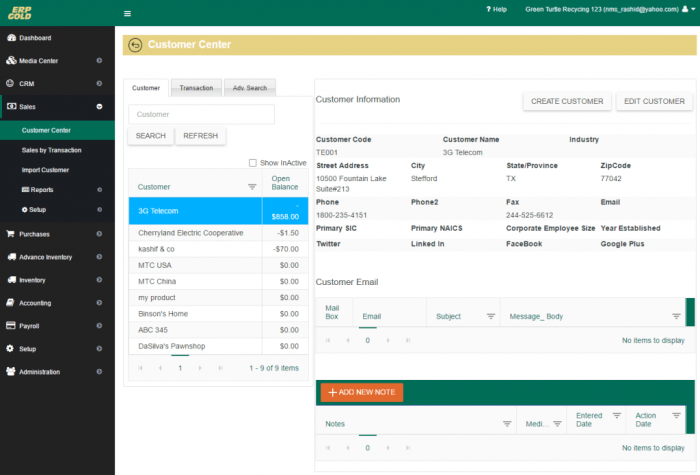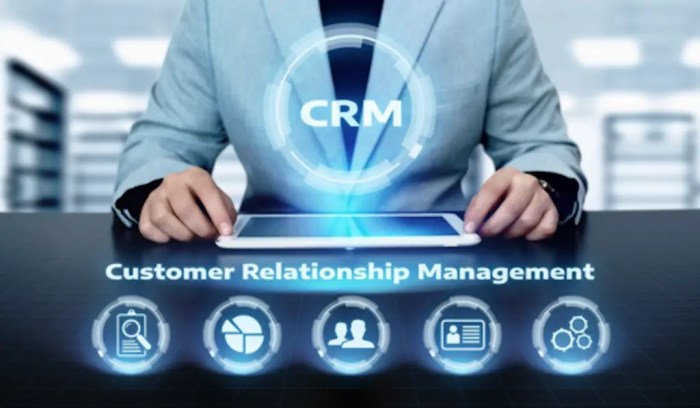Crm software for customer service – In today’s competitive landscape, providing exceptional customer service is paramount to business success. Customer Relationship Management (CRM) software has emerged as a vital tool for businesses of all sizes, streamlining operations and enhancing customer interactions. This comprehensive guide delves into the intricacies of CRM software specifically tailored for customer service, exploring its features, benefits, and implementation strategies.
Understanding CRM Software for Customer Service
CRM software, in its simplest form, is a centralized system designed to manage and analyze customer interactions and data throughout the customer lifecycle. For customer service teams, this translates to a significant improvement in efficiency, communication, and overall customer satisfaction. A robust CRM system empowers service agents with the information they need to resolve issues quickly and effectively, fostering stronger customer relationships.
Key Features of Customer Service-Oriented CRM Software, Crm software for customer service
- Ticketing System: Efficiently manages customer inquiries, complaints, and requests through a centralized ticketing system. This allows for easy tracking, prioritization, and resolution of issues. Features often include automated routing, status updates, and escalation procedures.
- Knowledge Base: Provides a readily accessible repository of information, including FAQs, troubleshooting guides, and product manuals. This empowers agents to quickly find answers and resolve issues without extensive research, reducing resolution times and improving customer satisfaction. Integration with AI-powered chatbots can further enhance this functionality.
- Customer Interaction History: Maintains a complete record of all customer interactions, including emails, phone calls, chat transcripts, and social media interactions. This allows agents to access a comprehensive history of the customer’s interactions, providing context and facilitating personalized service. This historical data is crucial for effective customer segmentation and targeted marketing campaigns.
- Reporting and Analytics: Provides valuable insights into customer service performance, identifying trends, bottlenecks, and areas for improvement. Key metrics such as average resolution time, customer satisfaction (CSAT) scores, and first contact resolution (FCR) rates are tracked and analyzed to optimize service delivery. This data-driven approach allows for continuous improvement of customer service strategies.
- Self-Service Portal: Offers customers a convenient way to access information, submit requests, and track the status of their issues independently. This reduces the workload on customer service agents and empowers customers to resolve simple issues on their own. Features like FAQs, knowledge base articles, and online chatbots are commonly integrated into self-service portals.
- Integration with other tools: Seamlessly integrates with other business applications, such as email clients, live chat software, social media platforms, and help desk systems. This ensures a unified view of customer interactions and eliminates data silos.
- Automation: Automates repetitive tasks such as email responses, ticket routing, and follow-ups, freeing up agents to focus on more complex issues and personalized interactions. This automation improves efficiency and reduces operational costs.
Benefits of Implementing CRM Software for Customer Service
The benefits of implementing a CRM system for customer service are numerous and impactful. These improvements contribute directly to increased profitability and sustained business growth.
- Improved Customer Satisfaction: Faster response times, personalized interactions, and efficient issue resolution lead to higher customer satisfaction rates.
- Increased Efficiency and Productivity: Automation and streamlined workflows improve agent productivity and reduce handling time for each interaction.
- Reduced Operational Costs: Automation and improved efficiency contribute to lower operational costs associated with customer service.
- Better Data-Driven Decision Making: Comprehensive reporting and analytics provide valuable insights to optimize customer service strategies and resource allocation.
- Enhanced Customer Retention: Exceptional customer service fostered by CRM systems leads to improved customer loyalty and retention.
- Improved Team Collaboration: Centralized access to customer information and communication tools enhance collaboration among customer service agents.
- Scalability and Flexibility: CRM systems can adapt to the evolving needs of a growing business, ensuring seamless scalability.
Choosing the Right CRM Software for Your Business
Selecting the appropriate CRM software involves careful consideration of various factors. The ideal system should align with your specific business needs and budget.

Source: erp.gold
Factors to Consider When Choosing a CRM
- Business Size and Needs: Consider the size of your business and the volume of customer interactions you handle. Different CRM systems cater to various scales of operations.
- Budget: CRM software comes with varying price points, from affordable cloud-based solutions to more expensive enterprise-level systems. Align your choice with your budget constraints.
- Features and Functionality: Prioritize the features that are essential for your customer service operations. Consider the importance of ticketing systems, knowledge bases, reporting capabilities, and integrations.
- Ease of Use and Integration: Choose a system that is user-friendly and integrates seamlessly with your existing business applications.
- Customer Support and Training: Reliable customer support and training resources are crucial for successful implementation and ongoing usage.
- Scalability: Ensure that the chosen CRM system can adapt to the growth of your business and handle increasing volumes of customer interactions.
Frequently Asked Questions (FAQ)
- Q: What is the difference between a CRM and a help desk system? A: While both manage customer interactions, a CRM is a broader system encompassing all customer interactions throughout the lifecycle, while a help desk focuses primarily on ticketing and issue resolution.
- Q: How much does CRM software cost? A: CRM software pricing varies greatly depending on the features, scalability, and vendor. Options range from free or low-cost cloud-based solutions to expensive enterprise systems.
- Q: How long does it take to implement a CRM system? A: Implementation time depends on the complexity of the system and the size of your business. It can range from a few weeks to several months.
- Q: What are the key metrics to track in a CRM for customer service? A: Key metrics include average resolution time, customer satisfaction (CSAT) scores, first contact resolution (FCR) rate, ticket volume, and agent productivity.
- Q: Can CRM software integrate with my existing systems? A: Many CRM systems offer integration capabilities with various business applications, including email clients, live chat software, and social media platforms.
Conclusion
Implementing a robust CRM system is a strategic investment that can significantly enhance your customer service operations. By streamlining workflows, improving agent productivity, and fostering stronger customer relationships, CRM software empowers businesses to deliver exceptional customer experiences and drive business growth. Careful consideration of your specific needs and a thorough evaluation of available options are crucial for selecting the right CRM solution for your business.
References
Call to Action
Ready to transform your customer service operations? Contact us today for a free consultation to discuss your specific needs and explore how the right CRM software can elevate your business.
Frequently Asked Questions
What are the common features of CRM software for customer service?
Common features include contact management, case management, ticketing systems, communication tools (email, phone, chat), reporting and analytics, and integration with other business systems.
How much does CRM software typically cost?
Pricing varies greatly depending on the features, scalability, and vendor. Options range from free, basic plans to enterprise-level solutions with substantial monthly or annual fees.

Source: metapress.com
How long does it take to implement CRM software?
Implementation timelines vary based on the complexity of the system and the organization’s size. It can range from a few weeks to several months.
What are the key metrics to track the success of a CRM implementation?
Key metrics include customer satisfaction scores (CSAT), Net Promoter Score (NPS), resolution time, first contact resolution rate, and agent productivity.
